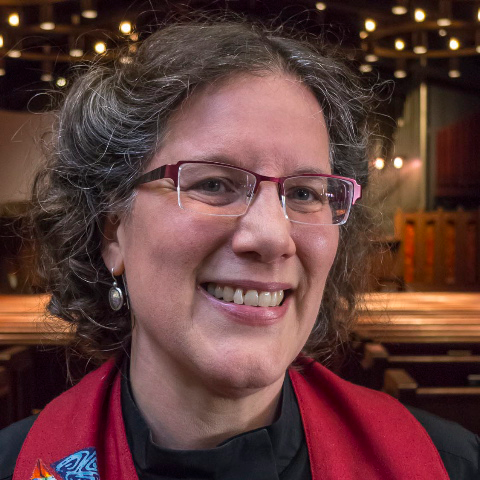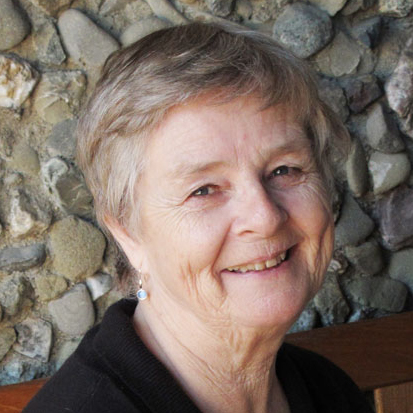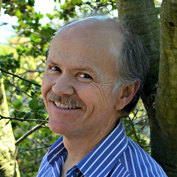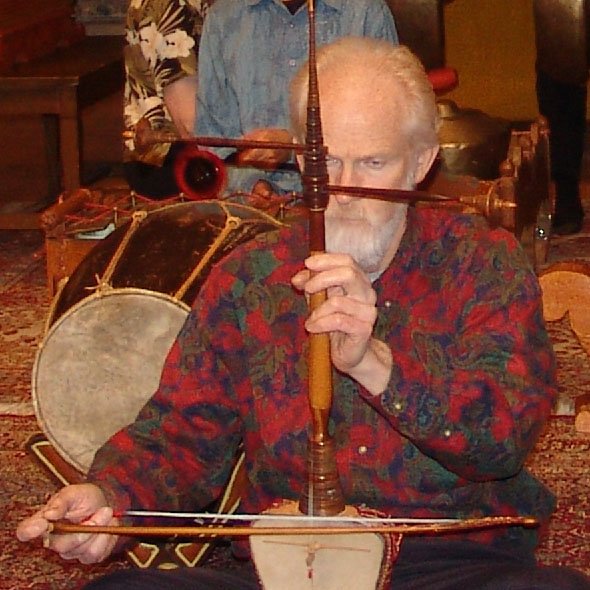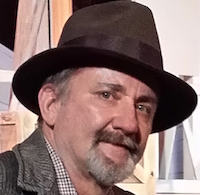Several pieces in the sermon are used with gratitude and by permission from a sermon by Rev. Bonnie Dlott
Sexuality and Religion. For so many people on our planet these are like oil and water, kept as far apart as possible. And for many it is even worse—to be a good Christian, a good Muslim, a good Buddhist, a good religious person, means rejecting all or part of a sexual life.
But of course we need only listen to few lines of Rumi or Hafiz, or a tale or two of Krishna, or even these first few lines of the Song of Songs to know that there is another story to tell about religion and sex:
1 Solomon’s Song of Songs.
2 Let him kiss me with the kisses of his mouth—
for your love is more delightful than wine.
3 Pleasing is the fragrance of your perfumes;
your name is like perfume poured out.
No wonder the young women love you!
4 Take me away with you—let us hurry!
Let the king bring me into his chambers.
The Song of Songs—the erotic poetry embedded in Jewish and Christian scriptures—is part of the set of ancient stories and texts that we inherit our ideas of paradise from. The earliest of course being the Genesis story of the garden of Eden. That story originally came out of the Sumerian stories of paradise. These were stories that described paradise as a place where the gods enjoyed the goodness of everyday life—including sexual pleasure.
In their book, The Meaning of the Bible: What the Jewish Scriptures and Christian Old Testament Can Teach Us, authors Douglas Knight and Amy-Jill Levine argue that in one interpretation of the genesis story, “Eden can be recovered, at least for a time, in an act of love between adults who are together and are not ashamed and who have an intimacy that is not shared with the rest of the world. (Knight & Levine, pg 302).” Eden can be recovered, at least for a time, in an act of love between adults.
Turns out, Unitarian Universalists have been proclaiming this good new for a while now. In the 1970’s, we developed a curriculum called AYS—About Your Sexuality, that was pioneering in giving adolescents access to accurate information about human sexuality. In the early 1990’s we partnered with the United Church of Christ to develop Our Whole Lives. For those of you who are not familiar with Our Whole Lives, or OWL as it is sometimes called, it is a lifespan comprehensive sexuality education curriculum with six segments for students from kindergarten age to adulthood. Each segment is age appropriate and emphasizes the value of accurate information, communication, justice, and sexual health. It’s not just a series of lectures; learning is experiential and group reflection is a critical part of each lesson. Participants learn, in a safe and supported environment, how to talk about sexuality, and to consider the consequences of unsafe behaviors, for themselves and for others.
Time after time, adults who grew up in a Unitarian Universalist congregation have told me that AYS or OWL was the thing they valued most about growing up UU. That this transformational experience gave them a foundational knowing that their sexuality is a wonderful part of their lives—a knowing that too many in our cultural do not have.
One of the assumptions of the Our Whole Lives program is that parents are the primary source of sexuality education for their children. This is a key foundation for OWL’s values, but there are several significant challenges involved in this approach: not the least being that many teens would rather be tortured than listen to their parents talk about sex. This is the case no matter how much parents want to give their children the information, but a bigger problem that many parents are uncomfortable talking to their children about sex. Often this is because a parent was raised in an environment where sex was not discussed at all, or it was seen as shameful. This is clear to anyone who attends an Our Whole Lives parent orientation. When we ask a group of twenty parents the question “Who received a good sexuality education at home or at school?” usually only one or two hands go up. Let’s see how this group does; raise your hand if you got a good sexuality education. Is it possible to give your child a good, comprehensive sexuality education if you never got one yourself? Can parents provide the most recent, medically accurate information available? Perhaps some can, but many parents want some support. They want to know that their child is being taught by a person who is respectful, knowledgeable, and cares about their child.
So what better place to learn about sexuality than in church, in the context of our Unitarian Universalist principles and values, with attention to the worth we place on human dignity, justice, and inclusiveness?
Now in case you are digging around in your pockets right now for those principles and purposes to find the ones about sex, don’t bother, it isn’t specifically mentioned.
The Rev. Bonnie Dlott, who is the minister of our Napa congregation and trains OWL teachers in our area—I’ve been trained twice by her, and owe her a great deal of gratitude for several pieces of this sermon—invites us to think about how our principles can apply to sexuality, by suggesting the game some people play with fortune cookies. Do you know the one I’m talking about? Now keep in mind that this is an adult game, to play only with people you know very well. What you do is, add the words “in bed” to the end of any fortune you get. This comes out something like this: “Make the best use of your time today. . . In Bed!” or “You are about to get a big surprise. . . In Bed!” Now we know that sexuality is about much more than just what happens in bed, but go with it for a minute…
We, the member congregations of the Unitarian Universalist Association, covenant to affirm and promote the inherent worth and dignity of every person. . . “In Bed”! It may sound funny, but what it translates to in Our Whole Lives is that everyone is entitled to their own attitudes and beliefs about sexuality, and that many forms of sexual expression are honored as valid.
Justice, equity and compassion “In Bed” might translate to the idea that we are all entitled to information about sexual health, and deserve to participate in relationships that are sexually healthy. In Our Whole Lives, a healthy sexual relationship is defined very specifically as one that is consensual, non-exploitative, mutually pleasurable, safe, developmentally appropriate, respectful, and based on mutual expectation and caring.
A free and responsible search for truth and meaning. . . “in Bed”, means that we are called to express our sexuality in ways that enhance human wholeness and fulfillment. We are called to express love, commitment, delight, and pleasure, while making responsible sexual choices. And itt means our spiritual journeys need not wait outside the bedroom door.
The goal of world community with peace, liberty, and justice for all “In Bed” means that we value and honor the sexuality of people of all genders, races, income levels, ages, backgrounds, physical and mental abilities, and sexual orientations. In Our Whole lives, we learn that our Unitarian Universalist principles and values are more than just abstractions; our principles hold us to certain standards of responsibility and respect, for ourselves and others, out in the world, and at home in bed.
OWL does include education about “the plumbing.” For our Kindergarten and first grade class that’s happening right now, that means teaching kids the names of their body parts—real names for all the parts. One of the first lessons in the middle school curriculum involves using a random assortment of art supplies to create 3-D models of internal and external organs—pipe cleaners, balloons, popsicle sticks, cotton balls and plenty of glue become detailed representations of male and female genitalia.
But beyond “the plumbing,” OWL delves into the deeper issues of values, emotions, beliefs, and experiences that surround sexuality. The model describes 5 components…
The first, which is the only one that is really covered in school sex ed, is Sexual Health and Reproduction. This is attitudes and behaviours related to producing children, care and maintenance of the sex and reproductive organs, and health consequences of sexual behaviour. Topics include: Factual Information, Feelings and Attitudes, Sexual System/Reproductive Systems, Physiology and Anatomy of Reproductive Organs, Intercourse
The second circle is Sensuality. The awareness, acceptance of, and comfort with one’s own body; physiological and psychological enjoyment of one’s own body and the bodies of others. Topics like Body Image, Human Sexual Response Cycle, Skin Hunger, and Fantasy.
The third circle is Intimacy, the ability and need to experience emotional closeness to another human being and have it returned. This is Caring and Sharing, Risk Taking and Vulnerability, Self-Disclosure and Trust.
The fourth circle is Sexual Identity, the development of a sense of whom one is sexually, including a sense of masculinity, femininity and other gender experiences. This is where we explore Gender Identity and Gender Role, and Sexual Orientation.
The last circle is Sexualisation, which is the use of sexuality to influence, control, or to manipulate others. It includes both the lighter end of Seduction/Fliriting, as well as harder topics such as Withholding Sex, Sexual Harassment and Rape and Incest. It is the circle of Sexuality and Power—it can be a realm of excitement and fulfillment, but also of pain and abuse. Too many of us have had these sorts of experiences.
That’s why on Valentine’s day, so many people around the world stood up against gender based violence. On Valentine’s day, my partner and I were up in Idyllwild, a tiny idyllic town in the mountains of Southern California. Now, you have to understand that Idyllwild is a very small town, and all you really do there is go from cute little shop to cute little shop, eat a nice little restaurants, and take hikes around the beautiful pine covered hills. So it was surprise as we walked down the main street, with snow melting along the sidewalks, and stumbled across a gathering of 30 or so, mostly older women, but some men and younger folks scattered as well, circled around the back of a Subaru with its trunk open, set up with a stereo system and microphone, everyone chanting together the lines of the One Billion Rising song that Eve Ensler helped distribute around the world to protest sexual violence. One Billion Rising! Even in Idyllwild, One Billion Rising.
This is why the work of comprehensive sexuality education is so critical. UUs empowered by OWL become voices reclaiming sexuality as a part of the original blessing of paradise.
This is fundamental to our faith—that we are good, that it is a blessing we were born. Ibrahim Farrajaje, provost at Starr King School for the Ministry often shares a powerful litany on the importance of our bodies in our spiritual lives. Each line resounds, “Bodies Matter.” So I echo him as I ensure you:
Bodies are good.
Soft newborn baby bodies are good.
Growing children’s bodies are good.
Awkward, curious teenager bodies are good.
Adult bodies are good.
Gray-haired bodies are good.
Wrinkly bodies are good.
Thin bodies are good.
Overweight bodies are good.
Bodies in wheelchairs are good.
Bodies living with HIV/AIDS are good.
Amputated bodies are good.
Bodies with cancer are good.
Male bodies and female bodies are good.
Intersex bodies and transgender bodies are good.
Gay, lesbian and bisexual bodies are good.
Straight bodies are good.
Queer bodies of all kind are good.
Black, white, brown, yellow, red, cinnamon, hazel, peach, ebony, ochre bodies, bodies of all colors are good.
It is as the psalmist sings in the fourth chapter of Song of Songs:
1 How beautiful you are, my darling!
Oh, how beautiful!
Your eyes behind your veil are doves.
Your hair is like a flock of goats
descending from the hills of Gilead.
2 Your teeth are like a flock of sheep just shorn,
coming up from the washing.
Each has its twin;
not one of them is alone.
3 Your lips are like a scarlet ribbon;
your mouth is lovely.
Your temples behind your veil
are like the halves of a pomegranate.
4 Your neck is like the tower of David,
built with courses of stone[a];
on it hang a thousand shields,
all of them shields of warriors.
5 Your breasts are like two fawns,
like twin fawns of a gazelle
that browse among the lilies.
6 Until the day breaks
and the shadows flee,
I will go to the mountain of myrrh
and to the hill of incense.
7 You are altogether beautiful, my darling;
there is no flaw in you.
You are altogether beautiful, my darlings. There is no flaw in you.
Amen, and Blessed Be.







